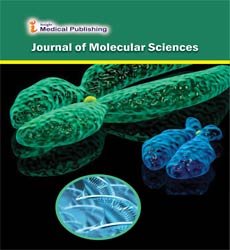Improvement of DNA Sequencing Strategies
Sebastian Markett *
Department of Psychology, Humboldt-Universität zu Berlin, Berlin, Germany
*Corresponding author:
Sebastian Markett
Department of Psychology
Humboldt-Universität zu Berlin, Berlin, Germany
E-mail: sebastian.markett@hu-berlin.de
Received date: July 01, 2021; Accepted date: July 14, 2021; Published date: July 22, 2021
Citation: Sebastian M (2021) Improvement of DNA Sequencing Strategies. J Mol Sci 5: e001.
Copyright: © 2021 Sebastian M. This is an open-access article distributed under the terms of the Creative Commons Attribution License, which permits unrestricted use, distribution, and reproduction in any medium, provided the original author and source are credited
Introduction
The slime mold Physarum polycephalum has been studied in laboratories across the world for decades, but only a few basic molecular biology tools have been developed and optimized for use in this organism; Burland et al. developed a strong promoter, a selectable marker, and amoebal phase electroporation methods for both stable and transient expression. In response to this lack of tools, I have developed three novel molecular biology methods to expand the genetic engineering toolbox available for use in this fascinating organism. The first is a highly efficient plasmodial phase lipofection method suitable for stable integration and expression of recombinant DNA without the requirement of axenic liquid culture. The second is a 2A peptide expression cassette design element that allows for equimolar expression of at least four separate proteins driven by a single promoter. The third is a Dictyostelium discoideum derived secretion tag with a nearly 100% secretion rate in Physarum. These methods have been used to successfully express and secrete 36 different proteins in great quantities without any alterations or optimization required for individual proteins.Connor Behr received the Emperor Science Award at 17 years old for his cancer research. At 19, he spoke at TEDxSaltLakeCity on his novel therapeutic protein production process in the organism Physarum polycephalum. That same year, he led a research team at the University of Utah and Brigham Young University studying diabetes and therapeutic drug production methodologies with a focus on insulin. With his team, he reported on their findings at the National University of Singapore and the University of Utah in the fall of 2020. Connor recently founded the biotech company Spero Technologies, Inc based on his processes.
Open Access Journals
- Aquaculture & Veterinary Science
- Chemistry & Chemical Sciences
- Clinical Sciences
- Engineering
- General Science
- Genetics & Molecular Biology
- Health Care & Nursing
- Immunology & Microbiology
- Materials Science
- Mathematics & Physics
- Medical Sciences
- Neurology & Psychiatry
- Oncology & Cancer Science
- Pharmaceutical Sciences
